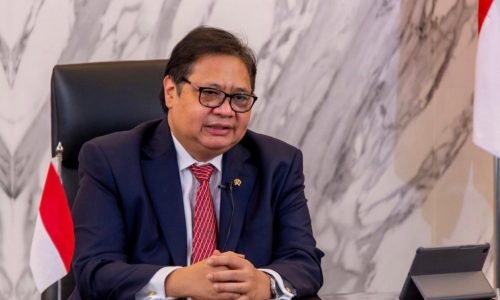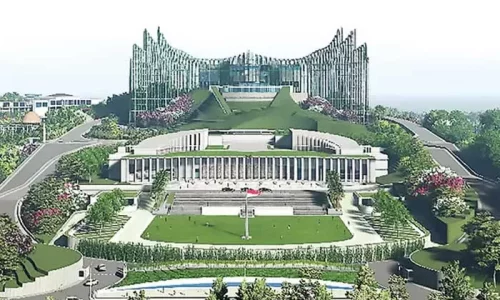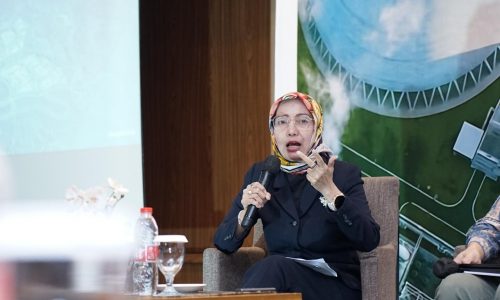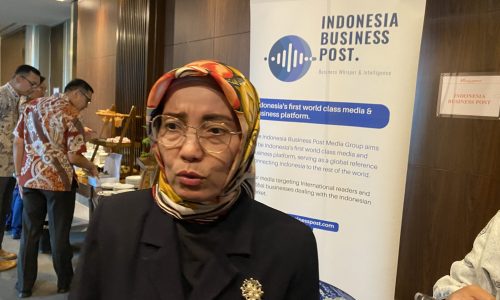Terrorist group Jamaah Islamiyah (JI) established a new political party as part of political agenda. A source said that the Jamaah Islamiyah Foundation was affiliated to a newly established Islamist political party, Indonesian People’s Dakwah Party (PDRI).
“Farid Ahmad Okbah is the party chairman who is also a senior member of JI, who was arrested on November 16, 2021, by Densus 88 anti-terror squad. Anung al Hamat is the deputy chairman of the party,” the source told Indonesia Business Post on January 17, 2022.
The PDRI website said it was founded on May 31, 2021, by some Muslim figures, clerics and intellectuals. Muslim community leaders established the party due to “the defeat” of Muslim majority in Indonesia in both politics and economics. Only 29.6% of votes in the 2019 general elections went to Islamic parties. Most voters cast their votes for nationalist and secular parties.
Muslims not necessarily vote for Islamic parties
In the 1955 general elections, Islamic parties were unable to reach 43.7% vote percentage obtained by the Masyumi party, PDRI said in its manifesto. The party said the loss of Islamic-based parties in elections has reduced the role of Muslims in determining the direction of development of the nation.
Furthermore, despite representing the majority of Indonesia’s population, the Muslim community only controlled 12 percent of the country’s economy. Approximately 98 percent of Indonesia’s population is Muslim. Income inequality and the distribution of wealth are significant problems in Indonesia. Most of the nation’s wealth is controlled by a small group of individuals.
PDRI urged the government to liberate states and regions occupied by imperialism concerning foreign policy. This included Palestine from the Israeli occupation, the Rohingya from Myanmar, and the Uighurs in China under the Communist Party.
According to their website, PDRI states that the organization’s primary objective is to implement Islamic teachings and laws in Indonesia in a constitutional manner. Contrary to this, it was in opposition to other ideologies such as Marxism, Leninism, Capitalism and Liberalism.
PDRI Deputy Secretary-General Yunasdi said the party was applying to the Law and Human Rights Ministry for formal recognition as a political party. Thus far, the party has attempted to meet all the requirements set by the ministry. The board of directors comprises members from all provinces in Indonesia, board members from 75% of regions, and board members from 50% of districts in Indonesia.
“We have people who will become board members of the all-party branch throughout Indonesia, but only about 60% to 70% of them have received an official mandate from the party,” Yusnadi told the Post.
Jamaah Islamiyah link
PDRI is part of the more effective JI strategy to establish an Islamic state or caliphate in Indonesia, according to National Counterterrorism Agency (BNPT) official Ibnu Suhendra. He believed that JI has switched from a violent approach to creating a political party as a means of accommodating their struggle in the political arena.
“The victory of the Taliban inspires them to follow suit,” he said, adding that many members of JI have joined PDRI.
Anti-terrorism and intelligence analyst Stanislaus Riyanta agreed with Suhendra. He said JI has done an good job of gaining public acceptance after leaving violent acts. Nevertheless, it takes legal and standard forms, including establishing a political party and a foundation to raise funds. As a result, they can strengthen their position and avoid the possibility of being arrested by security personnel.
Karis Hadirin, a terrorism analyst and alumnus of JI’s religious school, explained that although JI indeed took an active part in national politics as part of its long-term plan, there was no evidence to suggest that PDRI belongs to JI.
According to Hadirin, there were several members of JI serving on the board of PDRI. They will likely be appointed to the board due to their close relationship with party chairman Okbah.
Yunasdi claimed his party had not been infiltrated or ridden by an irresponsible group, such as deviant sects and terrorist groups. “We are a Dakwah party dedicated to returning to Islamic principles. We wish to see Islamic people repent and return to the path that God has guided them along,” he said.









